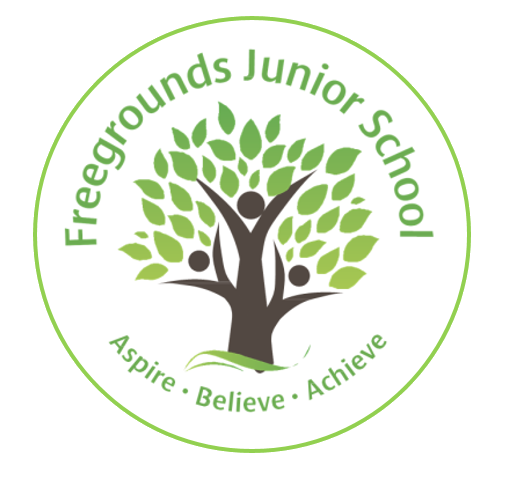Science
"The important thing is not to stop questioning." - Albert Einstein
Intent
At Freegrounds Junior School, we aim to provide an exciting science curriculum, giving all pupils the opportunities to explore, discover and question natural phenomena, and to develop a deeper understanding of the world we live in. We want to harness pupil’s natural curiosity and excitement, through meaningful and memorable learning experiences, that lead to a lifelong enthusiasm for science. Through a careful sequencing of ‘Big Questions’, planned progression of skills and a growing scientific understanding, built through the interplay of the disciplines of biology, chemistry and physics, we aim to develop a powerful science knowledge in every child. Both substantive and disciplinary knowledge and skills will be gained through an enquiry approach to learning, with focus on building on previous learning to deepen understanding. Using practical, hands-on approaches supported by the appropriate theory and real-life investigations in our extensive grounds, pupils will develop their abilities to predict, observe, analyse and problem solve. This will enable them to critically evaluate and respect living organisms and the physical world around them and become responsible stewards of the world in the future.


Implementation
Science is taught to all pupils, throughout the year, at Freegrounds Junior to ensure coverage and a structured progression of knowledge and skills from year three to year six, in line with the National Curriculum for Science. Where possible, science ‘Big questions’ are topic linked to enhance pupils learning and engagement, but may also be taught discretely where needed.
Planning for each learning journey highlights opportunities for gaining both substantive and disciplinary knowledge and skills through high quality modelled practise, practical investigation and subject specific vocabulary. The use of scientific vocabulary is important and as such, is specifically identified for each topic, will form part of topic displays within classrooms and there is an expectation it will be used in written and verbal work.
Building on previous knowledge is essential to enable pupils to deepen understanding, make progress and become increasingly independent in their investigations. Weekly and monthly retrieval practice will be planned into each lesson to revisit relevant key points. Any misconceptions and knowledge gaps may be identified and will be addressed as they arise.
Assessment is ongoing throughout each topic, during lessons, in the form of planned questioning and discussion, and responding to work in pupils books. This allows for responsive teaching from staff within the lesson or adjustments in teaching for future sessions for the whole class or individuals. Written feedback responses to larger or more independent work may be seen in books and D.I.R.T may be used to allow pupils to respond. Evidence of an appropriate progressive learning journey will be seen in books of any age and ability. More formal assessment will follow Hampshire guidelines at the end of each unit.
All pupils will be able to engage with science lessons through a variety of different approaches to learning, both theoretical and practical and the promotion of outdoor learning, which complements the science curriculum and provides real context. Materials will be differentiated appropriately for SEND pupils and alternative methods of recording, including verbal response, will be available to prevent literacy issues becoming a barrier to scientific learning. Appropriate enrichment tasks will also be available to extend understanding of our more able pupils.
Through science, pupils will have many opportunities to develop their learning behaviours of: teamwork, resilience, creativity, critical thinking, independence and reflection. Opportunities for these behaviours will be explicitly highlighted within each unit of planning.

























